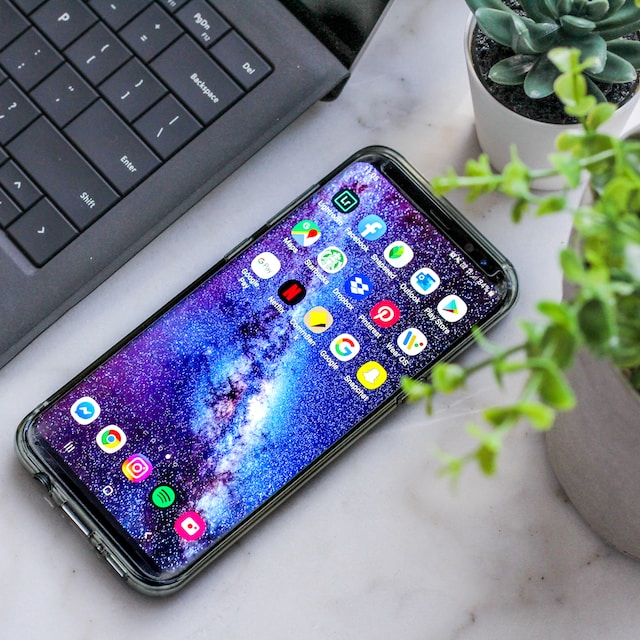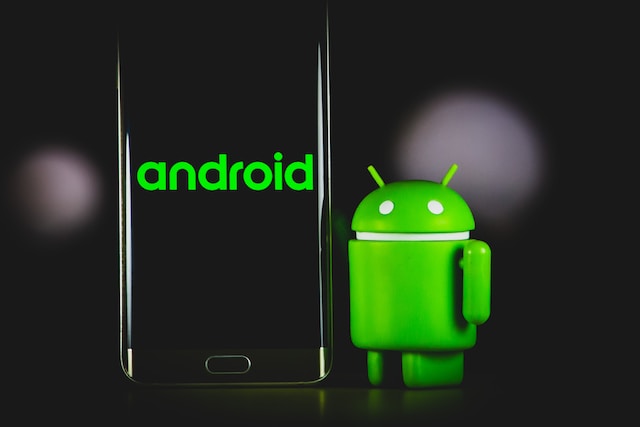As we approach 2024, the landscape of Android app development continues to advance at a quick pace, bringing both exciting opportunities and challenges.
This blog post examines the five greatest Android app development trends that will affect the market in 2023, ranging from developing technologies to shifting user preferences.
By understanding and embracing these trends, Android developers may unlock new opportunities, improve user experiences, and stay ahead of the curve in the competitive app industry.

- Artificial Intelligence and Mobile Learning in Mobile App Development
Artificial intelligence (AI) and machine learning (ML) technologies have been making waves in the app development world in 2023, and their influence is only expected to grow.
Integrating AI and ML into your mobile app can enhance the user experience, streamline operations, and improve decision-making processes.
One useful application of AI and ML in mobile apps lies in personalized content and recommendations. Leveraging AI algorithms, app developers can analyze the behavior of the users and deliver tailor-made content. This ensures each user feels the app was built specifically for their preferences.
ML, on the other hand, can make advanced data-driven decisions and future suggestions based on intricate data analysis, trends, and market predictions.
- Frameworks for Multiplatform Development
Cross-platform app development has become increasingly popular as businesses seek to reach a wider audience across different operating systems and devices. It provides a significant boost to development speed by utilizing a singular source code across multiple platforms.
Besides saving time cross-platform development also cuts costs significantly, as developers can write code once and deploy it on multiple platforms without the need for separate development teams or extensive rewrites.
- The Use of Android Jetpack
Android Jetpack encompasses a wide range of libraries and features provided by Google, that cover various aspects of app development, such as user interface, data management, navigation, testing, and more.
By leveraging the components of Android Jetpack, developers can take advantage of pre-built functionalities, reducing the need for boilerplate code and accelerating the development process.
These components, such as LiveData, ViewModel, Room, and Navigation, offer standardized and efficient solutions to common app development challenges, enabling developers to focus on creating innovative features and improving user experiences.

- Internet of Things (IoT) Connectivity
The IoT ecosystem continues to expand, with an increasing number of devices and sensors becoming interconnected. Recent statistics indicate that the IoT market is projected to reach a staggering $1.6 trillion by 2025.
By integrating IoT functionality into Android apps, developers can enhance user experiences, automate processes, and create personalized interactions. Data collection and analysis from IoT devices bring up new possibilities for app personalization, predictive analytics, and intelligent automation.
One example of IoT connectivity in an Android app is a smart agriculture application. Farmers can utilize IoT sensors placed in the soil to monitor moisture levels, temperature, and nutrient content. The app can collect this data in real time and provide farmers with insights and recommendations for optimizing irrigation and fertilization.
- Enhanced Security and Data Privacy
With the growing concerns surrounding data privacy and security, app developers are placing increased emphasis on implementing robust security measures to protect user data. They are adopting advanced security practices such as secure authentication methods, data encryption, and adherence to strict security guidelines provided by Google.
They are also integrating biometric authentication methods, like fingerprint or facial recognition, to enhance both security and user convenience.
Furthermore, privacy laws like the California Consumer Privacy Act (CCPA) and the General Data Protection Regulation (GDPR) have forced developers to prioritize user consent, transparent data practices, and data minimization.

Conclusion
As we move toward 2024, the Android app development landscape is evolving rapidly, presenting both opportunities and challenges for developers. The five major trends discussed in this blog post highlight the key areas where developers can make significant strides in creating innovative and user-centric apps.
If you're looking to incorporate these trends into your app but need assistance, consider contacting a leading company for app development in Chicago that operates globally. They provide comprehensive services and can help turn your unique idea into a successful reality, allowing you to create and propel your app to success in today’s competitive market.
